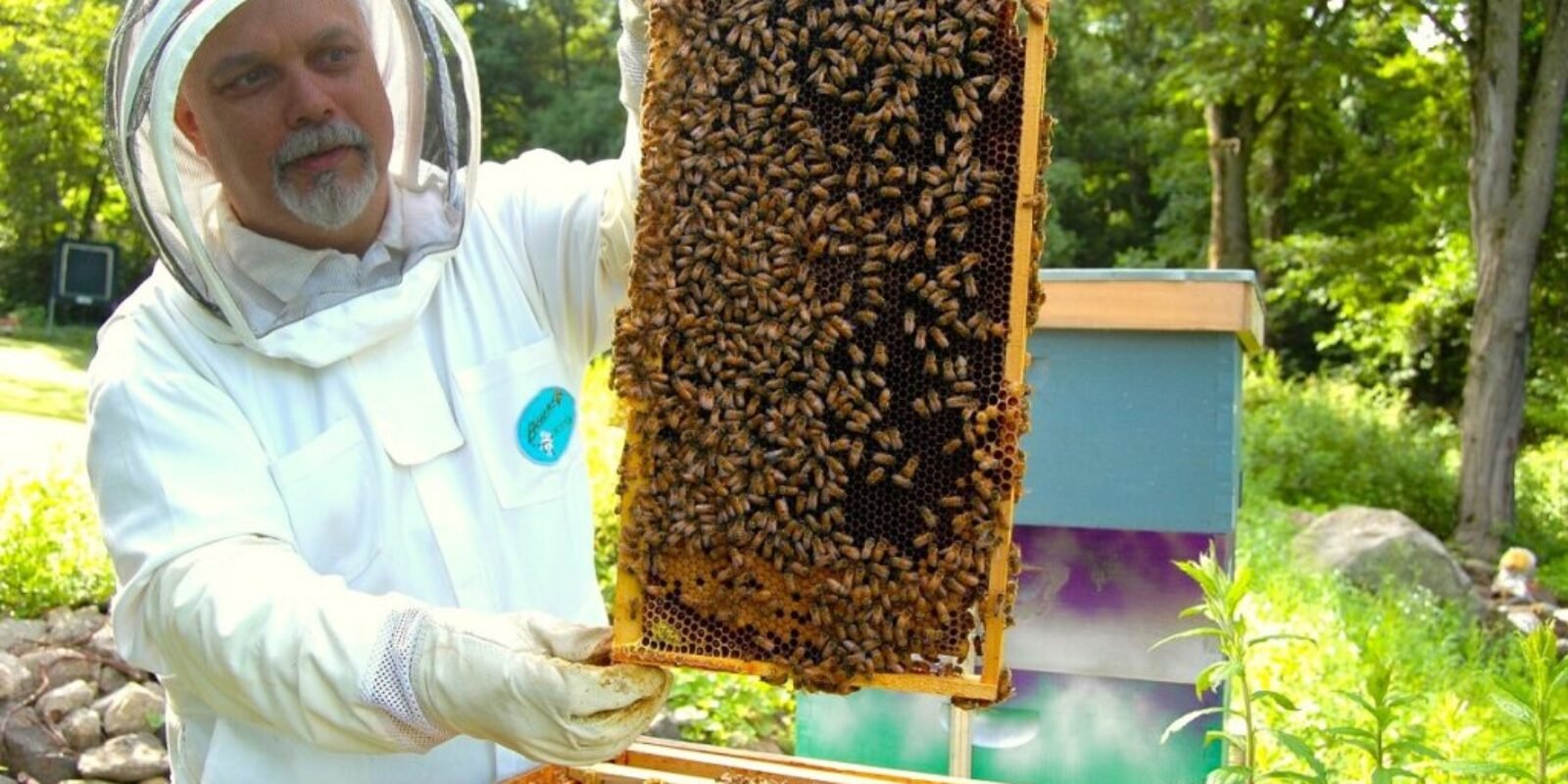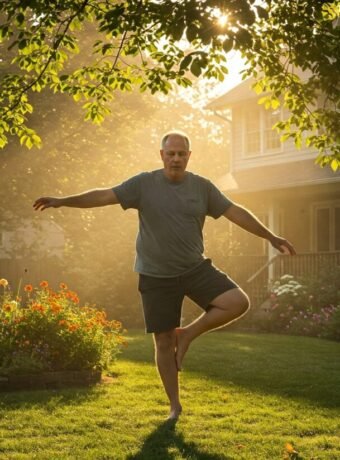The buzz is that home beekeeping for seniors is fast becoming a sweet new diversion for older adults in many countries around the world. Indeed, observers note that more and more people from all age brackets are taking up beekeeping.
Some analysts have suggested that the pandemic may have prompted the recent “outbreak” of interest in senior beekeeping. When COVID-19 slowed life worldwide, authorities encouraged people to stay in their homes and busy themselves with outdoor activities.
A Growing Enthusiasm on Beekeeping for Seniors
Many countries saw a surge in pursuits such as gardening, camping, hiking, urban agriculture, and birdwatching. You would have caught a hint of that outdoor mania had you gone online to shop for vegetable seeds, gardening supplies, or hiking and camping gear that year. Chances are, you would have found only a handful of outdoor supplies and equipment left on Amazon.
Call it the beehive mentality if you must, but there appears to have been an equally impressive increase in teh public’s interest in beekeeping at the time.
Prefer to listen rather than read?

Research shows that consumers worldwide began to take an interest in the valuable role of honey as an immune enhancer and antiviral agent during the pandemic. This renewed interest in the sweet, golden, syrupy bee product drew much public attention to backyard beekeeping.
Today, even as the world cautiously moves on from Covid 19, many pandemic beekeepers have kept on tending to their beehives. Urban beekeeping has become a trend in New York City, where authorities estimate that there are now at least 600 active beehives throughout the city.
You’ll find them on the rooftops of Riverdale all the way down to Battery Park. Many of the hives are unregistered.
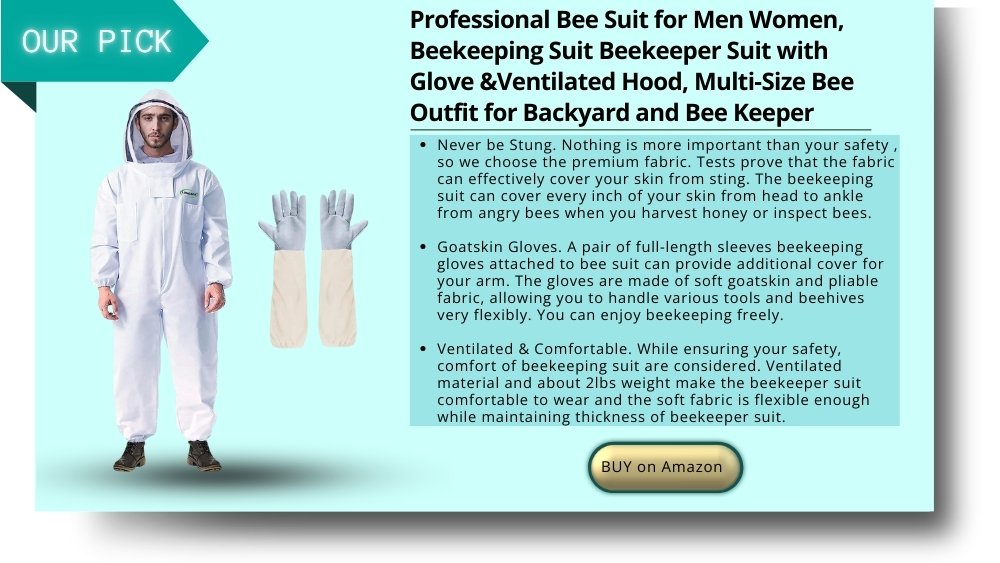
Exploring the Therapeutic Benefits of Beekeeping for Seniors
There is now an equally vigorous beekeeping community in Melbourne. There, urban beekeeper associations like Melbourne City Rooftop Honey work with local communities to host their hives. The public has responded to the organization’s efforts with an exceptional level of interest.
In Paris, apiaries have sprung up on the gables of some of the city’s most iconic edifices. The Opéra Garnier, the Musée d’Orsay, the École Militaire, and the Grand Palais have not been spared.

The Marvelous Benefits of Home Beekeeping For Seniors
Quite apart from the multi-billion-dollar global commercial beekeeping industry, millions of people of all ages throughout the world raise honeybees as a leisure activity. Many of the world’s newest beekeeping enthusiasts are seniors.
Home beekeeping provides older adults with a fulfilling and rewarding pastime in later life. You’ll find senior beekeepers caring for hives, looking after colonies, collecting honey, and enjoying their retirement in the company of buzzing honey-makers everywhere these days.
And why shouldn’t they? Here are just 4 of the many reasons you should get into beekeeping right now.
Beekeeping is Good for the Senior Mind
Home beekeeping involves studying the complex behaviours, life cycles, and biology of bees. This includes understanding their roles within the hive, how they communicate, and how they contribute to the ecosystem.
Bees and their unique characteristics are an intellectually stimulating subject of study. Western honeybees, in particular, have a sophisticated social structure within their colonies.
The complex and intriguing social construct that rules each honeybee colony includes a well-defined class system. There are workers, drones, and the queen. Each class performs a vital function that is essential to the hive’s ecosystem.
Senior beekeeping permits you countless occasions to study and understand the communication methods that bees employ. This requires observing and noting intricate behaviour patterns and interactions within the colony.
Senior beekeeping also engages and sharpens your problem-solving skills. The many challenges of beekeeping, such as hive maintenance, pest control, or managing swarms – require continuous analysis.
To keep their colonies healthy, beekeepers must maintain a quick ability to assess situations, troubleshoot problems, and find solutions.
These challenges promote the application of critical and analytical thinking, both of which are important to the maintenance of a lively mental disposition among older people.

Senior Beekeeping Offers Opportunities for Light Exercise
While senior beekeeping does not require strenuous work, it involves various physical tasks that provide valuable exercise for older adults.
The components of a beehive, such as honey supers, frames, and hive boxes, can vary in weight. Carrying out routine tasks that involve lifting and moving these components improves upper body strength and muscle tone.
Regular maintenance tasks like cleaning the hive, repairing equipment, and ensuring the hive’s stability require bending, squatting, and reaching. These repetitive movements contribute to the flexibility and balance of seniors.
Often, too, senior beekeeping involves the maintenance of gardens to attract bees. Tending to these areas involves hours of planting, weeding, and watering. These activities occasion additional physical activities.
Senior beekeeping activities primarily take place outdoors, too. Spending time in the yard, or gardens and rooftops, exposes beekeepers to wholesome, health-giving sunlight.
Sunlight helps the body produce vitamin D. Older adults need sufficient levels of vitamin D to ensure bone health.
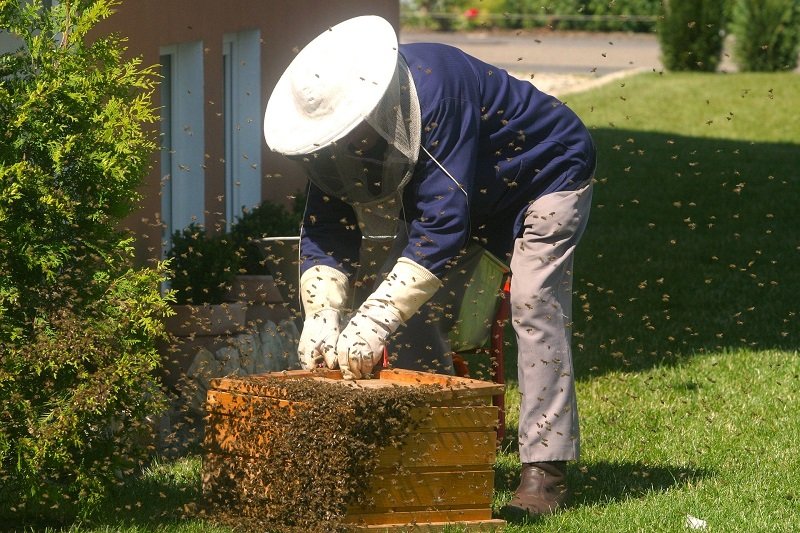
At the same time, sunlight triggers the release of serotonin in the brain. These hormones promote feelings of happiness in older people, especially. In turn, feelings of happiness and wellness reduce symptoms of depression and anxiety.
Of course, fresh air is rich in oxygen. It is without the pollutants in the air you breathe indoors. Fresh, clean air leads to better respiratory health. Regularly breathing in fresh air can improve lung function and the overall well-being of older people.
A healthy mix of physical activity and exposure to fresh air and sunlight allows for multifaceted benefits for seniors. It supports the improvement of the physical health, mental well-being, and overall quality of life of older beekeepers.
Seniors Enhancing Food Security Through Beekeeping
Senior beekeeping helps farmers raise our food. Honeybees are important pollinators. They are the main animal pollinator of nearly 90 percent of the crops that people grow for food.
By ensuring natural pollination processes, bees help people to grow plants from which the human population derives fruits, vegetables, nuts, and oilseeds.
The daily routines of senior beekeeping likewise contribute to the conservation of bee populations. More and more these days, the world’s bee populations face threats like habitat loss, pesticide exposure, and diseases.
By protecting and maintaining healthy and active bee colonies, senior beekeepers add to the ongoing conservation of different bee species.
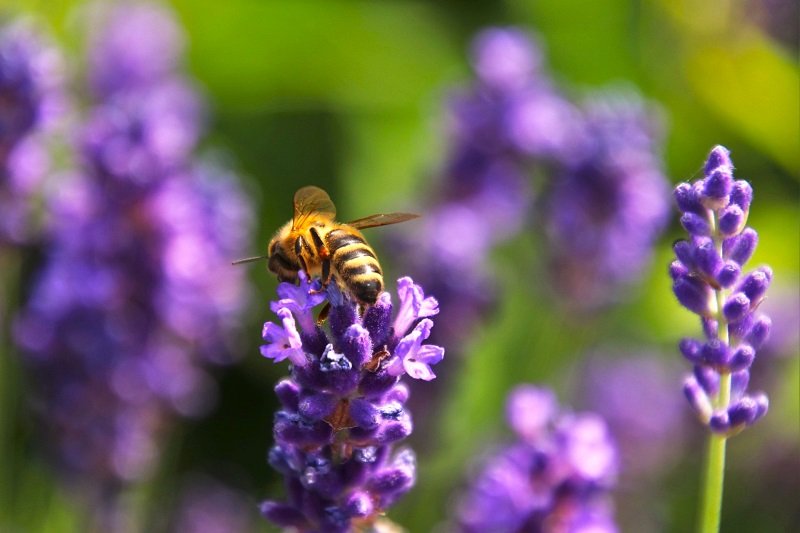
Senior Beekeeping Allows Older People Access to Ample Supplies of Honey
To raise honeybees is to produce honey. People across cultures and millennia have valued honey for its health benefits. The ancient Egyptians, the Greeks of antiquity, and the emperors of China all prized the healing properties of honey.
Today, we know that honey is exceptionally healthy food for older people. While it’s primarily composed of sugar, it also contains small amounts of nutrients like vitamins B and C and minerals such as calcium, iron, and magnesium.
For seniors who might have decreased appetite or difficulty eating, honey can serve as a natural source of energy and nutrients. The antioxidants present in honey, such as flavonoids and phenolic compounds, can help reduce oxidative stress and inflammation in the body.
This can be especially beneficial for seniors who confront age-related conditions like arthritis or cardiovascular issues. Honey possesses natural antibacterial properties, as well. This makes it an effective salve for wound management and healing.
You can apply honey as a topical treatment for minor cuts, scrapes, or burns. It will help prevent infection and promote faster healing. Some doctors have even used medical-grade honey, like Manuka honey, in clinical settings for wound care because of its potent antibacterial effects.
Honey, particularly raw and unpasteurized varieties, contains enzymes and beneficial bacteria that can support digestive health. It may help alleviate symptoms of indigestion or constipation, common issues among older adults.
Honey is sweeter than sugar, so a smaller amount can be used to sweeten foods and beverages. For seniors watching their sugar intake or dealing with conditions like diabetes, using honey in moderation can be a preferable natural sweetening option.
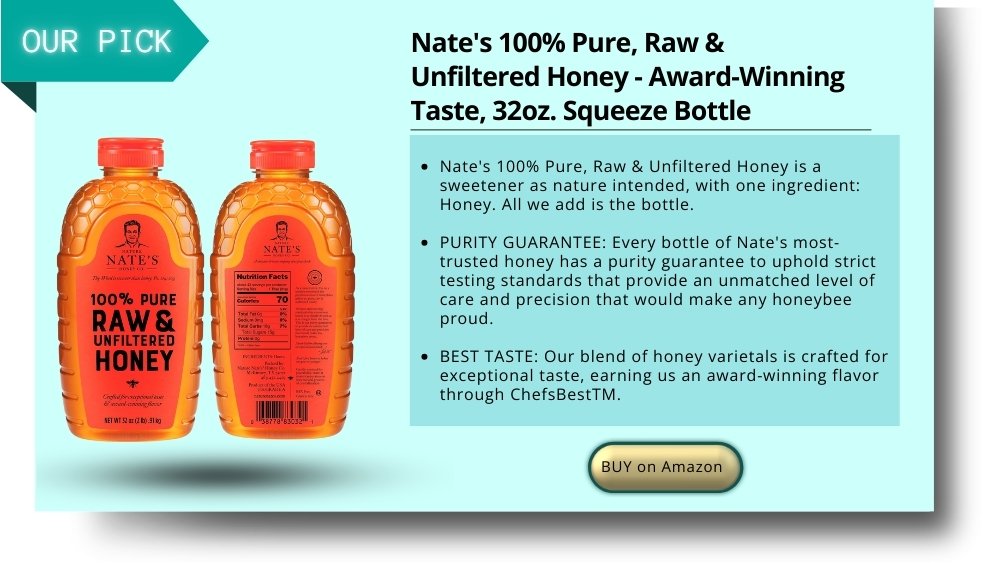
Where and How to Learn the Basics of Beekeeping
Older men and women who are interested in senior beekeeping can explore various avenues to learn more about apiculture. Check the beekeeping associations or clubs in your area. They often offer classes, workshops, or mentorship programs for beginners, including seniors.
These associations might have experienced beekeepers who are willing to share their knowledge with you as well. Several online learning platforms offer beekeeping courses that are suitable for seniors. You can also find YouTube channels devoted to beekeeping.
Hundreds of apiculture experts have published books and manuals on beekeeping. Libraries often carry a selection of these books. These publications can be a valuable source of knowledge for beginner beekeepers.
Keep an eye out for beekeeping workshops, seminars, or similar gatherings in your area. These gatherings might offer demonstrations, practical sessions, and opportunities for you to biuld a network of experienced beekeepers who can offer you advice.

Ensure Your Safety with an Electric Fence if You Live in Bear Country
So, what can senior beekeeping enthusiasts do to protect their hives and themselves if they happen to live in bear country? Tony Pisano, a senior beekeeping expert and author of the book Build Your Own Beekeeping Equipment, advises senior beekeeping enthusiasts to erect an electric fence around their property even before they install their beehives.
Pisano says a tough, well-grounded electric fence of 6 or 7 strands of electric wire powered by a good charger is the best protection against bear damage and bear attacks.
Wide-impedance energizers deliver higher voltages, especially in dry soil conditions. They work better as predator deterrents than portable electric fences and low-impedance fences.
In addition, experts say that you should combine your hives into bee yards. When sufficiently fenced, a bee yard can provide robust security for both you and your hives.
Pisano also points out the importance of maintenance and regular testing. “If a tree overhangs your fence, a bear could climb it and drop down inside,” he says. “If the vegetation around your fence isn’t kept trimmed, depending on your charger, it can weaken the battery to the point of being ineffective.”
If you are a dog lover, you may also consider augmenting your electric fence with a bigger dog or two. Dogs are good deterrents against bears. So much so that ranchers use dogs to protect their livestock against bears and other large predators.
If you’re unsure, or do not know, how to build or test a fence, Pisano suggests that you attend workshops run by your town or local beekeeping organizations. Otherwise, have professionals build the fence.
While good fencing is a bit on the costly side, when the cost is reckoned against potential personal injury and losses to hungry bears, it is certainly a reasonable expense.
“Some people don’t bother,” Pisano says. “Some don’t think there will be a problem [with bears] where they live.”

Different Types of Beehives Available for Beginners
Selecting the right beehive is a crucial first step if you’re venturing into beekeeping. Here are the primary types of beehives you should consider:
Langstroth Hive
The Langstroth hive is a top choice among new beekeepers, credited for its user-friendly design. It consists of stacked boxes, each fitted with removable frames. These frames make it easy to check on your bees and harvest honey without entirely disturbing the colony. This adaptable modular structure allows you to expand as your bee population grows.
Top Bar Hive
For those interested in a more traditional approach, the Top Bar Hive might be appealing. As one of the oldest hive designs, it features horizontal bars laid over a long box. Bees construct their comb downwards from these bars. This setup is simpler to construct and manage, although it yields less honey than the Langstroth. It’s ideal for those who prioritize natural beekeeping practices and smaller-scale production.
Each of these hives offers unique advantages, so consider your space, goals, and involvement level when choosing.
Before You Begin …
Aside from watching out for bears, keep in mind that it’s crucial to consider any serious health and safety concerns before you begin raising honeybees. Consult your doctor to discuss the potential risks involved in senior beekeeping.
You may be more susceptible to severe allergic reactions, or you may have pre-existing conditions that could worsen with a bee sting.
Even if bee stings pose no serious threats to your health, wear a full-body beekeeping suit made of a thick, breathable fabric. You should also get a protective beekeeping hat with a sturdy veil, gloves, and other protective gear.
Remember to get in touch with local authorities before you begin your beekeeping project. Many areas have specific regulations governing beekeeping. These regulations may include rules about the number of hives you are allowed to keep, distances from property lines, and hive placement.
You should ensure that you comply with these regulations to avoid legal issues. This is particularly true if you intend to sell honey from time to time for extra income.
The Takeaway
Senior beekeeping emerges as not only a pastime but a source of multiple benefits. It offers intellectual stimulation through the study of bee behavior and hive dynamics, which can keep the mind sharp. Physically, it involves tasks that enhance strength, flexibility, and overall health due to outdoor activity and sunlight exposure.
Environmentally, beekeeping supports pollination and food security while promoting the conservation of bee populations. Moreover, it provides access to honey, a natural health booster, which holds particular value for seniors. Engaging in beekeeping can also reconnect seniors with the natural world, providing a sense of purpose and tranquility in retirement.
Well, what are you waiting for, start your beekeeping journey now!
FAQ: Home Beekping For Seniors
- What are the health benefits of organic honey?
- Organic honey offers a range of health benefits, making it a valuable addition to your diet. Its rich phytonutrients boost the immune system, while its antioxidants protect the body from free radical damage and lower the risk of chronic diseases. It supports digestive health by promoting beneficial gut bacteria and serves as a natural antimicrobial agent for wound healing. Additionally, organic honey may improve heart health by balancing cholesterol levels and supporting cardiovascular function.
- What are the initial costs and time commitments associated with starting beekeeping?
- Starting beekeeping involves an initial investment of time and money, but it can be a rewarding experience. Financially, setting up two hives typically costs around $1,000, which includes hives, bees, protective gear, and essential tools. Ongoing expenses, such as feed and maintenance, are necessary as the hive evolves with the seasons. Time-wise, expect to spend about an hour each week on hive management, along with additional time for learning through books, research, and workshops to better understand bee behavior and hive care.
- What is the process for extracting and bottling honey?
- Extracting and bottling honey is a rewarding process that requires careful timing and proper tools. Start by harvesting when about 90% of the honeycomb cells are capped or when the moisture content reaches 18.6%, measured with a refractometer. After calming the bees with a smoker, remove the honeycomb, uncap the wax seals, and extract the honey using a centrifuge, ensuring the combs remain intact for reuse. Allow the honey to settle for a few days, filter out impurities, and bottle it into sterilized jars to preserve freshness.
- What essential equipment and supplies are needed for beekeeping?
- Starting beekeeping requires essential tools and protective gear to ensure safety and effective hive management. Key tools include a hive tool for separating boxes and lids, a smoker to calm bees during inspections, a scraper for cleaning wax buildup, an uncapping scratcher for honey harvesting, and a honey extractor to efficiently remove honey from the comb. Protective gear is equally vital, with a veil to shield your face and neck, gloves to protect your hands, and a bee suit or separate jacket and pants for full-body protection. With these essentials, you’ll be ready to manage your hive and enjoy the rewards of beekeeping.
- How should you position your beehives in your backyard for optimal results?
- Positioning your beehives correctly in your backyard is key to your bees’ health and safety. To minimize human-bee interactions, keep hives away from busy areas like patios and walkways. Ensure hive entrances face south, east, or southeast for morning sunlight and cooler afternoon shade, while placing them near natural windbreaks for protection from gusts. Choose a dry, easily accessible spot for inspections and maintenance to keep the hives healthy and functional.
- When is the appropriate time to harvest honey from a beehive?
- Harvesting honey at the right time is essential for achieving the best quality. Traditionally, beekeepers look for about 90% of honeycomb cells to be capped with wax, indicating maturity and reduced moisture content. Modern methods involve using a refractometer to measure the honey’s moisture level, which should be 18.6% or lower to ensure stability and prevent spoilage. Combining these approaches allows you to accurately time your harvest for thick, high-quality honey.
- How do you choose the right bees for your bee colony?
- Choosing the right bees for your colony is vital for successful beekeeping. European honeybees (Apis mellifera) are the most popular choice in the United States due to their adaptability, productivity, and gentle nature. Ensure the bees you select are suited to your local climate and have a manageable temperament, especially if you’re a beginner. Start with a nucleus colony, which includes frames of honey, brood, a queen, and worker bees, and purchase from reputable local or online sources to set the foundation for a healthy, thriving hive.
- How much space do you need for a beehive in your backyard?
- Allocating the right amount of space for a beehive in your backyard is crucial for your bees’ well-being and enjoyment of the area. Aim for six to eight feet of open space around the hive to ensure clear flight paths and reduce potential disturbances. Consider the hive type and its specific spatial needs, and keep the area directly in front of the hive obstacle-free to allow bees to take off and land smoothly. For small yards, use a tall fence or hedge to direct bees upward, minimizing their interaction with high-traffic areas and creating a balanced environment.
Disclaimer
The content provided on MySeniors.World is for informational purposes only and is not intended as either financial or medical advice. Always consult a qualified professional before making any investment or health-related decisions.
Posts may contain affiliate links, meaning we earn a commission – at no additional cost to you, if you click through and make a purchase. Your support helps us continue providing valuable content.
